Guards inside a new ‘death wing’ at a Saudi Arabian jail give no warning to inmates before they are marched off and beheaded, a shocking new report has revealed.
Tabuk prison, in the north of Saudi Arabia, has become notorious for its rampant execution of prisoners, as well as allegations of torture and forced confessions at the hands of brutal guards.
The Guardian reported that inmates know exactly when another faces death.
An execution squad of 20 guards walk into the so-called ‘Death Wing’ and approach an inmate. They will then whisper something in their ear and escort them out.
This is a far cry from the previous way of doing this in Tabuk prison. Guards would previously warn inmates of their executions beforehand, giving them a chance to shower and call their loved ones.
Now, however, families that spoke to the newspaper say they are only informed after the execution.
Saudi Arabia is among the worst countries in the world for executions, only sitting behind China and Iran. Under Saudi leader Mohammed bin Salman, executions have only become more frequent.
Though most are believed to be beheaded, family members aren’t certain of their fates as the bodies of their loved ones aren’t returned. All they get is a death certificate.
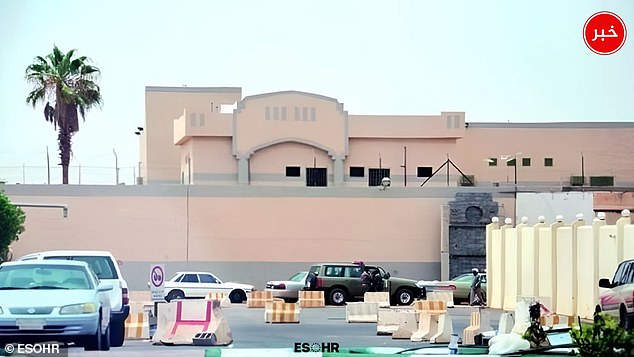
Tabuk prison (pictured), in the north of Saudi Arabia, has become notorious for its rampant execution of prisoners
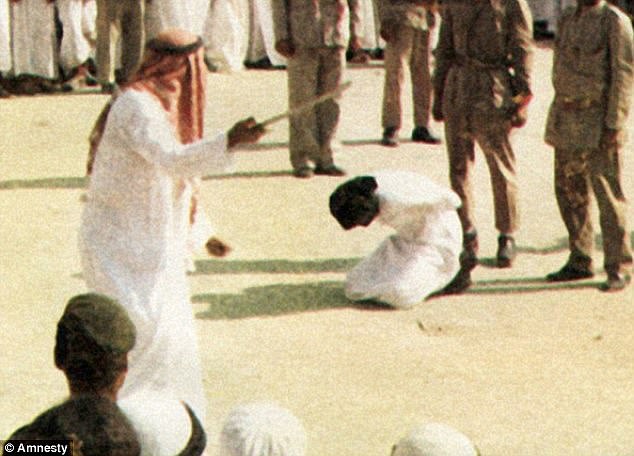
According to Reprieve, a human rights charity, 346 people were executed between January 1 and November 3 this year alone (A man seen kneeling as he is about to be executed in Saudi Arabia)
Ahmed Younes Al-Qayed, who had been working at a Saudi Arabian hotel when he was arrested on charges of drug traffucking in 2016, was one of dozens who were on death row for non-violent drug offences.
His family said that following a moratorium on executions set out by MBS in 2021 led them to believe he may survive his stint in prison.
But the ban was lifted the following year, and a horrifying surge of executions followed.
According to Reprieve, a human rights charity, 346 people were executed between January 1 and November 3 this year alone.
The vast majority of these people were charged with non-lethal drug offences.
Al-Qayed was executed last year after guards calmly approached him and two other men.
His family told the Guardian that they still do not have his body, nor do they know where he is buried. His cousin Hazem said: ‘We still live on edge’.
Earlier this year, a prominent Saudi journalist who was arrested in 2018 and convicted on terrorism and treason charges after tweeting against the government was executed.
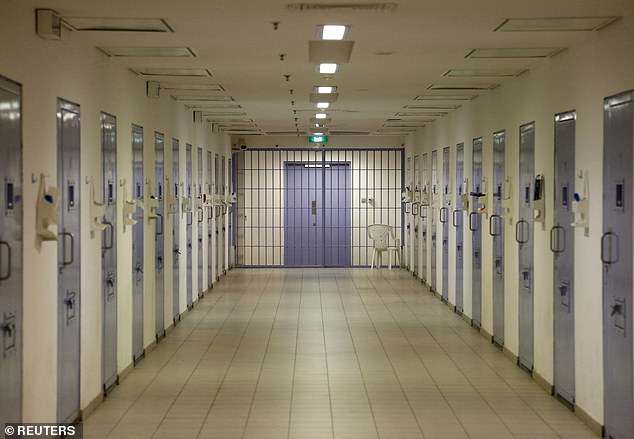
A general view of Ha’er Prison in Saudi Arabia on July 6, 2015
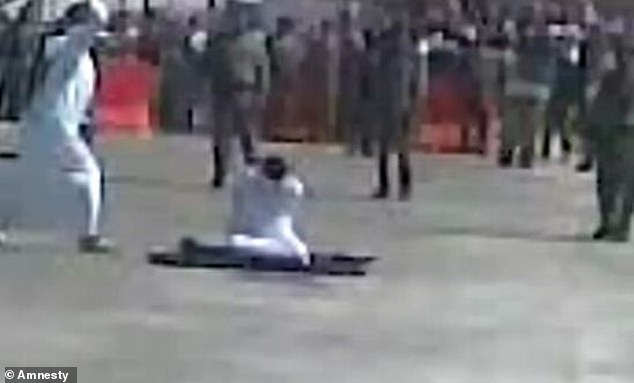
Saudi Arabia is among the worst countries in the world for executions, only sitting behind China and Iran (A man kneels moments before being beheaded in Saudi Arabia)
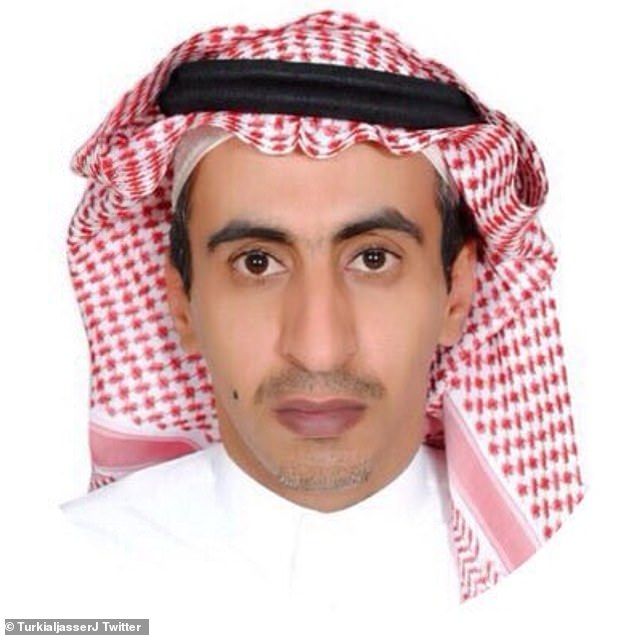
Saudi journalist Turki Al-Jasser was executed for tweeting against the government
Turki Al-Jasser, who was in his late 40s, was put to death in June, according to the official Saudi Press Agency, after the death penalty was upheld by the nation’s top court.
Authorities had raided Al-Jasser’s home in 2018, arresting him and seizing his computer and phones.
It was not clear where his trial took place or how long it lasted, but he is believed to have been tortured during his seven-year imprisonment, The Guardian reported.
According to the New York-based Committee to Protect Journalists, Saudi authorities believed that Al-Jasser was behind a social media account on X which exposed human rights violations by officials and the royals.
Al-Jasser was also said to have posted several controversial tweets about militants and militant groups.
CPJ’s program director Carlos Martínez de la Serna condemned the execution and said the lack of accountability allows for continued persecution of journalists in the kingdom.
Al-Jasser’s execution was the first high profile killing of a journalist after Jamal Khashoggi was slaughtered in 2018 by agents of the Saudi government at the Saudi consulate in Istanbul.
